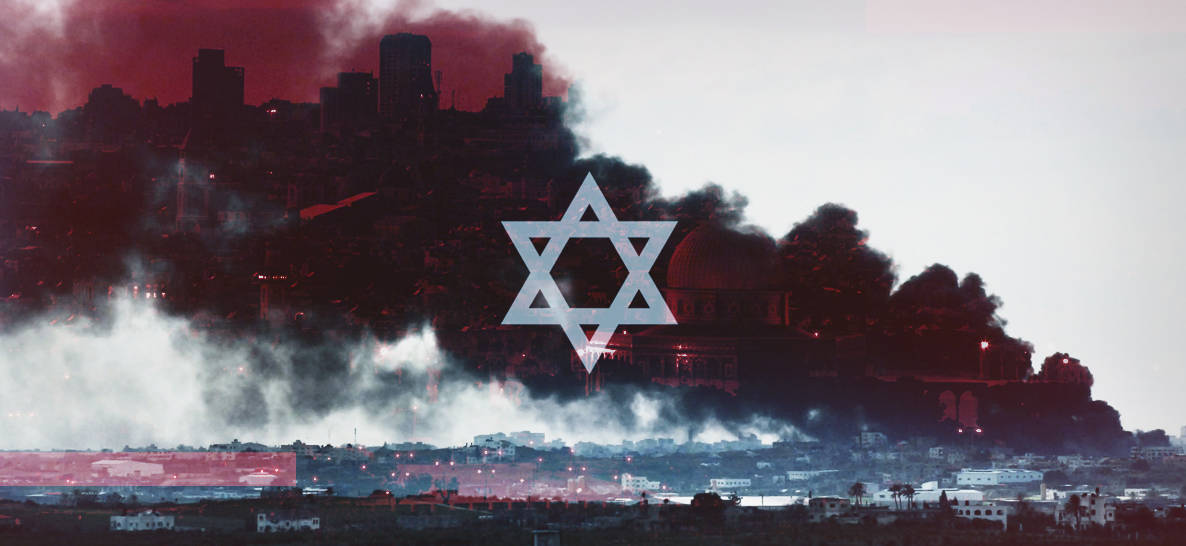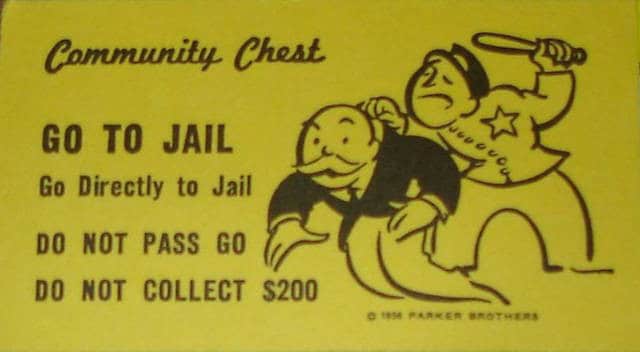
We live in a world with perpetual violence in the Middle East. Often, if we’re honest, we don’t understand why. But with violence increasing to even higher levels than usual in the past few weeks, Christians simply can’t ignore what’s going on.
So we asked Todd Deatherage, co-founder of the Telos Group, a nonprofit dedicated to educating American leaders about the Israeli-Palistinian conflict, to help us understand what’s going on and what we can do about it. (And if you’re interested in a much deeper look, see our March 2014 cover story).
We’re seeing it in the news all over the place, and seemingly more so lately in the past week or so: What’s going on in Israel and Palestine?
What we’re witnessing here is failure. Failure to seek peace. Failure to deal honestly and to come to terms with the past. Failure to listen to each other’s narratives. And probably most importantly, failure to listen to people on both sides who are doing the things that make for peace and those who want to build a different kind of future.
In the absence of any kind of progress, you think back to the words of the Psalmist: “Where there is no vision, the people perish.” That’s what we’re seeing. There’s no vision; the voices of extremists on both sides tend to grow in that environment. We’ve got an unresolved conflict with absolutions being altered in a serious way. And we have leadership that really is not doing much at all to deal with the core issues.
The peace process that began 22 years ago is defunct, and too few on either side are working to solve issues and too many see nothing but a dark future.
And then to add to all this mix of hopelessness and lack of any vision, you have real or imagined threats to sacred space that have been the real trigger for what’s going on. The contested sites, particularly the Temple Mount which the Muslims call “Haram al-Sharif,” the site of the al-Aqsa Mosque and the Dome of the Rock, and which is also holy to Jews as the site of the two Jewish temples. There’s this historic status quo that governs the temple mount. For 1,400 years, this area has been an Islamic holy site, and so it’s been under Islamic control for religious purposes. But since 1967, when Israel took control of the temple mount and all of Jerusalem in the Six-Day War, they have sort of re-clarified the status quo to allow Jews to visit there, though not to pray there.
In this part of the world, access to holy sites is a very sensitive issue. And threats to sacred space, whether real or imagined, have often been triggers for unrest and violence. So some of what you’re seeing now is triggered by some that—and it’s also just an expression of a lot of frustration and hopelessness and the way both sides have become separate from each other. They don’t know each other, and there’s just a lot of misunderstanding about who the other is and what their objectives are.
For many of us, it just seems like there’s always been angst and violence in the Middle East—and it always has something to do with Israel. But I would guess many aren’t really sure what’s going on. So can you give us an overview of why there is conflict going on over there in the first place?
The Israeli-Palestinian conflict—which is something we have all grown up with—is only a few generations old. It’s not centuries old. In my view, it’s a modern geopolitical conflict—it’s two national groups who want the same piece of real estate, basically.
Israeli and Palestinians are vying for the same small piece of real estate. Whether you call it the Land of Israel or Historic Palestine, this land between the Mediterranean and the Jordan River is a small piece of real estate, about the size of New Jersey, and both peoples have legitimate historic ties to it. For about 100 years now, they’ve not a found way either to share it or divide it. So that’s at the core of this.
In my view, at its core, it’s not a religious conflict. Religion is the lens through which a lot of people see the land, and they’re placed there, and religion too often has been a source of tension.
Is there a Christian perspective to everything we’re seeing? What should we as Christians be thinking?
Some American Christians will see this through an eschatological lens, or a lens of end-time prophecies. But another way to see what’s going on there, as a Christian, is through a lens of peacemaking.
Jesus said “blessed are the peacemakers.” He taught us some other things that apply, like telling us to love enemies and telling us to forgive and to be ambassadors of His kingdom by acting counter-culturally as agents of salt and light, of healing and transformation. He called us to join Him in His redemptive work to make all things new.
So for me, a Christian response to this shouldn’t be to imagine that we bring the full perfection of heaven into the fallen world. But it’s also not to imagine that, “Well, they’ll always be fighting and nothing can be done about it.” Instead, we need to reject the idea that any situation is so messed up that some measure of redemption is not possible.
The right Christian framework on this is really to go deeper in a serious way. Peacemaking can’t be disconnected from how messed up the world is, and from the hard issues that create conflict and violence and hatred. It’s serious, gritty stuff if you try to engage it at that level. I’m not suggesting we need to be on the ground trying to broker peace between the Israelis and Palestinians as American Christians. There are people there, Israelis and Palestinians, who do understand the things that make for peace and are trying to do those things—and those are the folks we need to listen to, learn about their work and give voice to them. They’re the ones who ultimately can show us the way out of the cycles of revenge that we’re in right now.
What do we Christians need to know when we’re reading news or discussing the conflict?
I’d say it’s important, when you look at a situation like it’s an intractable conflict, to appreciate that there are two groups of people here who have very different stories to tell. If you really want to understand, you have to be willing to listen to both. It doesn’t mean you have to agree— you can’t agree with both, because these are largely irreconcilable narratives—but you have to be willing to listen.
That’s one of the things as Americans we have a hard time doing. Learning to listen to different kinds of stories is a really important part of engaging the world, especially when you have complicated global issues like this. It’s never as neat and clean as you want it to be. We like things to be very black and white. We like to put them in our little boxes—here are all the good guys with the white hats; here are all the bad guys with the black hats. And the world doesn’t quite work that way.
Alexander Solzhenitsyn had this great quote from the Cold War era that “The line between good and evil is not a national border or anything else, it runs actually down through every human heart.” It’s in each person to do good things in the world and to do bad things, because we’re all born image bearers of the God who made us, and, at the same time, we’re all sons of Adam and daughters of Eve.
For those who want to help, what can we do?
Activism that is not fully informed can often make things worse that you’re trying to make better. So it’s important to learn about the conflict. It’s important to get to know people on both side of the conflict—the Israelis and Palestinians who are doing the work of peace and reconciliation—and try to give them support and tell their stories. If you really want to be active on this, one of the great challenges is to do it in a way that works for mutual flourishing for the people who live there on both sides of the conflict.
In some ways, we’ve kind of imported this conflict into our own culture in America, and so we are either pro-Israeli, which is by default anti-Palestinian; or we are pro-Palestinian, which is by default anti-Israeli. That, in some ways, can sound right and feel right, but in the end, that kind of activism often actually feeds back into the conflict and helps perpetuate the conflict. So don’t allow your pro-Israeli activism to be anti-Palestinian, and don’t allow your pro-Palestinian activism to be anti-Israeli. Reject that sort of zero sum game and support things that allow for mutual flourishing for both people in the land.
If you get involved in this, you have to hold two things in common: You have to have courage to say things you think are right and true, but you have to have humility at the same time. What you don’t want to do is end up perpetuating conflict. So you want to appreciate the complexity of it, appreciate that you may not have all the answers. Temper your courage in acting with a sense of humility—I think that’s a really important tension as you think about engaging.























